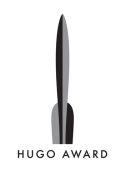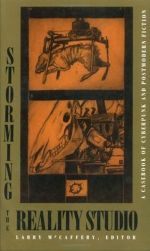How We Fall
The air was electric with her presence. Sergeant Grund’s exposed hands and face tingled with it and it sparked like tiny blue flares from the frayed remnants of his parachute harness. She sat on an upturned crate, legs curled up beneath her, a simple white dress falling to the floor like something from a classical painting, her wings folded in behind leaving a halo of silvery feathers around the perfect curls of her brown hair. She was slim as a spring flower, but her presence filled the abandoned factory.
There was a click. A few meters away from the girl, Brok sat lean and dark, disassembling and reassembling his rifle, wiping down parts, counting bullets, blowing imagined dust from the crevices of the firing mechanism, coldly indifferent as small blue sparks flew from the pieces. His pistol lay ready at his side. Grund shifted his weight, the crate creaking beneath him. Sure enough, Brok’s hand whipped out for the gun.
“Jesus, sarge, no need to scare me.”
Grund snorted. Nothing scared Brok except missing a pay cheque, but you couldn’t knock the guy’s reflexes, and that counted for more than his motives.
Grund walked over to the broken outlet pipe that sank like a well into the concrete floor. His footsteps echoed back to him as he approached, pausing to peer into the still darkness beyond the pipe’s jagged edge. Fragments of green scum floated across the surface of oil-tinged water.
“He ain’t coming back,” Brok said, examining a clip of hollow points.
“Maybe,” Grund said. “We said an hour.”
Brok glanced at his watch. “Two minutes. Then he ain’t coming back.”
The girl raised her head, looked at Grund with a soulful stare that stirred more than his heart. “He will be back,” she said. “I have seen it.”
“Course you have, love,” Grund said, trying not to sound too harsh. The girl was a wild card, an unexpected element in a mission already running into trouble. He wanted to keep her calm while he worked out what she was, why she was here.
He strode over to the wall, checked the explosive charges along its edge.
“You think they know what this place was?” he asked.
Brok shrugged. “I don’t care, and the mechs can’t.”
There was a slosh and a hand appeared over the broken edge of the pipe. Grund strode over and grabbed Private Levit’s arm, pulling him up onto dry ground. Levit stood, dripping water thick with dirt and chemicals, took the breather from his mouth and the goggles from his eyes. Even covered in filth and camo fatigues he looked the part of a soldier, with the strong, wholesome build of a young man raised on rugby and long hill walks. In any other war, any other combat zone, Levit would have been wearing stars and ordering the rest of them around. But things were different in The Grid. Everything was different.
“There is a way,” he said, his accent clear as cut crystal. “Nearly a mile south east, the pipe comes out onto a reservoir. No mechs around that I could see. From there we’d have a clear run to the extraction site.”
He put the goggles and breather down. He’d barely even looked at Grund as he gave his report, and now he walked over to the girl, concerning radiating from his chiselled face.
“How are you?” he asked, crouching in front of her.
She smiled, a smile like sunshine and heaven’s blessing. “I’m well,” she said. “And you, my brave boy?” She reached out a hand, stroked his dirty face, and he beamed.
Brok muttered something filthy and chambered a round.
“What did you say?” Levit asked. There was steel beneath his manners. Grund checked his holster was open. This was the moment he’d been waiting for, the moment he’d feared.
“I said she’s a crazy bitch, and so are you.” Brok rose. He’d put the gun down, but his hand was on his knife. It was the sort of sturdy, sharp instrument of pain Grund had seen on the belts of hundreds of ex-mercs, a memento of their old days, prizing gems from temples and gold teeth from prisoners. There was no doubting the purity of Brok’s motives.
Levit glared at Brok. “Take it back,” he demanded.
“You crazy?” Brok said. “You think that’s a real angel? She’s nothing from heaven, just a bundle of cosmetic genetic tricks, a head full of over-priced drugs and hands that have never done a day’s work.”
“I know where the angels come from,” Levit said. “But God moves in mysterious ways. Father Ishmael teaches that the angels are as much his creation as if he had cast them from clay with his own two hands. Just because they can be explained doesn’t mean they aren’t a miracle, or that their message isn’t real.”
“You believe this, sarge?” Brok flicked a derisory gesture at Levit.
Grund was all too ready to believe. Not in angels or messages from above, but in the influence of Father Ishmael Jones and the Church of the Rising Time. Trust an ex-Jesuit to turn an upper class fashion into a middle class cult.
“I’m not judging,” he said. “What matters is what we do now.”
Levit glared at Brok. “You’re going to want to leave her, aren’t you?” he said.
Before Brok could answer a clang echoed around the factory. All three men stood, weapons drawn, listening for the regular rhythm of mech footsteps.
Grund could feel his heart pounding in his chest. No matter how long he spent behind enemy lines, he never got used to it. It was worse when the place used to be their own. The Grid, this sprawling mess of factories and processing plants, of highways and data cores, it had all been part of the Union. A month ago this building had echoed to the sound of presses stamping out ammo casings, the bubble of chemical vats. Now it was deserted, empty except for them and their fears.
Brok was the first to lower his weapon. “Metal ceiling,” he said. “Probably just a bird.”
He looked at Levit and his gun inched back up.
“Stand down,” Grund said. “Both of you.”
The two privates backed away from each another, weapons lowered, fingers still on triggers. Outside, the pounding of distant artillery was joined by the sound of small arms fire – the snap and bang of Union firearms, the sizzle of mech lasers. A man screamed, or maybe it was a crow.
Grund looked over at the barricaded door. Given what they’d left outside, there was no leaving that way. Not unless they wanted their legs blown off.
“I ain’t for leaving her,” Brok said. “That kind of body modification’s expensive. Some kid on the grid’s got it, sure as shit she’s linked to someone important. Wife of an exec, daughter of a senator, something like that. We take her, we’ll be well rewarded.”
“Is money all you think about?” Levit looked shocked. His own idealism made it hard for him to see others’ motives. It was part of why Grund was the sergeant. He knew men’s minds, knew how to motivate the pure hearted kid and the bitter old mercenary.
Brok shrugged. “What else is there?”
“Honour. Sacrifice. Patriotism.” Levit made the words sound like a prayer, an appeal to something greater. Grund didn’t believe in higher powers, not even the ones Brok cared about.
“There is something more than this,” the girl said, gazing at Brok. “A better purpose you can live for, if you let it into your heart.”
She held out her hand towards him, the corners of her eyes welling with tears. Were they for a lost soul she hoped to see redeemed, or for fear of the horror outside the door? Grund couldn’t tell. He knew men’s minds, but the way she held herself, the way her face stayed so simple and open, he couldn’t read that.
“Those aren’t the things that make the world work,” Brok said. “Only way you get anywhere in this world is cash. Ain’t that right, sarge?”
Grund shrugged and went to check the charges again. He needed time to think, to work his way through what was going on with the girl and his men. But time was the one thing he didn’t have. The gunfire was getting closer, the artillery not far behind it.
“It doesn’t matter why you want to rescue her,” he said. “Question is, how would you do it? There’s four of us, three breathers, and only one way out.”
Levit looked around the factory, seeking a solution. Grund had spent the past hour exploring it, and he knew there were no answers there. No way to pierce the walls that wouldn’t bring them down. No way up through the ceiling that wouldn’t leave them exposed to snipers, and the mechs made damned good snipers. No back doors, no hidden tunnels, no air shafts wide enough to take a man. Nothing but that water-filled pipe.
“There’s a way to get her out,” Brok said, a wicked grin twitching the edge of his mouth. “We take her dead.” He paused for Levit’s shocked gasp and the girl’s sad frown. “People pay more for rescues, but they’ll pay for a body to bury too.”
“No!” Levit moved between Brok and the girl. “We’re not resorting to murder.”
“What do you think we do every day?” Grund said, adjusting the detonator in a lump explosive. Brok sniggered and Levit looked shocked, just like always.
“That’s different,” he said. “Not all killing is murder. This is war. There has to be a way. We can… We can…” He glanced around, eyes settling on his own breather, still dirty from his crawl through the pipe. “We can share the breathers. Pass them around so that no-one’s without air too long.”
Brok sniggered again. “How are you going to manage that in a sewage pipe?” he said. “One behind another, shoulders tight between the sides. We won’t be turning round, never mind passing equipment around.”
“It could work,” Levit said, a hint of desperation in his voice. “We could tie a string to them, and, and…”
Grund placed a steady hand on the young man’s shoulder, steered him over to one of the packing crates. “He’s right, Eli,” he said, keeping his voice soft. “It wouldn’t work. Not moving quickly, not in those tight spaces. You know it.”
Levit’s shoulders slumped. He nodded. “I just want to…”
Grund left him there, shot a warning look at Brok and waved the girl over. She uncurled herself from her perch and followed him as he strode down the silent lines, past mechanical hands grasping empty air, unlit welding torches and dusty conveyor belts, all the tools of a place that had made the most deadly of weapons. A place that still could.
The guns were growing louder. A jet roared past overhead.
Close up, the girl’s presence was even more startling. Light shone from the buttons on Grund’s shirt, flickered from the eyelets of his boots. He could feel his heart beating faster. She smelled like his mother’s roses and the pines round his uncle’s cabin, like his first girlfriend and his baby’s head. She smelled like everything he loved and missed, and as she leaned close to him he felt the call of home. He yearned to take her there, away from all this bloodshed.
But that feeling was a lie, born of manipulative hormones and bio-electrical implants. A thing of artifice and deception. Wasn’t it? She looked so like an angel, it would be easy to believe she was the product of God.
“Is there anything you’re not telling me that could help?” Grund asked. “Something about your modifications, I mean. Like you can fly, or go without air, or you’ve got a distress chip embedded behind your ear.”
She shook her head. “I have only what God gave me, and these poor wings have suffered from my fall. Only when I return to his grace will I soar again.”
“Uhuh.” Grund wasn’t surprised, or really even disappointed. You had to have a hope before it could be dashed. “Never mind.”
“Sergeant, don’t you believe?” she asked. “You’ve promised to serve others, to protect them from the mechs, to give yourself to this horror that others might live. You’re a good man. Don’t you want to be saved yourself, not your body, not this mere dirt, but what lies inside?’
She touched his chest and his heart pounded even faster, the blood pumping in his veins so hard it drowned out the approaching violence. He stood, giving in to the temptation for a moment, dreaming of a greater good, a God who loved him and who he loved back, a salvation beyond bodies and dirt and torment. Electricity crackled around his buttons, little blue arcs crackling back and forth from the girl. Her head gave a strange little jerk.
Then he brushed her hand aside and strode back down the line.
“We need to leave,” he said as he got back to the others. “It’s getting too close to wait any longer.”
There was more than one jet overhead now, and the bark of anti-aircraft fire. An explosion shook dust from the roof.
“Maybe we’ll win,” Levit said with unconvincing optimism. “Maybe our chaps will push them back. We’ll be rescued, and-”
“It’s not that sort of attack,” Grund said. “They won’t hold the ground. They can’t. They’re nothing more than a distraction for us, and the longer we wait the more men die.” He pulled the remote detonator from his pocket, started checking the connections. “We need to leave.”
The girl stepped out from between the machines, her face imploring, hand outstretched in another of those oil painting poses she struck so well. It was a look that said “I am innocence” or “I am wealth,” depending on which way the light fell on your eyes. It looked hollow to Grund. Mechanically perfect, an immaculate imitation in place of emotion.
“Please,” she implored, “don’t leave me.”
“I won’t,” Levit promised. “We’ll share the breathers. We’ll get you out safe.”
“It won’t work.” Brok’s anger peeled back the detachment he wore like armour. “We’ve still got work to do, and she’s a liability.”
Outside, there was a clang of metal footsteps, their steady rhythm closing in.
“I’m not leaving her,” Levit snapped. His gun was out again, Brok’s too, the two men circling each other, the air between them thick with menace.
“Not saying you have to,” Brok said. “But she ain’t coming breathing.”
“You bastard.”
A gunshot echoed round the factory. Grund let the jolt of it ease from his arm as he took in the others’ stares. The girl stood, sparks flying from the hole in her dress.
“Angel or not, didn’t you wonder how she survived all this?” Grund squeezed the trigger again and the girl’s head exploded, scattering fragments of wire and circuit board across the room. Her stiff, lifeless body toppled to the floor. He breathed a sigh of relief. If he’d been wrong, things could have got very messy.
“Shit.” Brok snorted with laughter. “So what, we were meant to lead her to our base, or…”
“My god.” Levit snatched up his breather. “We should go.”
The clanging grew faster, louder. Something smashed against the factory door.
“Too late.” Grund said as the door bent inwards, hinges squealing in protest, screws popping out. He held the detonator up, flipped the safety off the switch. “Far too late.”
The End
Andrew lives in Stockport, England, where he strives to escape adulthood by inventing stories and playing fancy dress. He’s had over thirty stories published in places such as Alt Hist, Murky Depths, OG’s Speculative Fiction and the Steampunk Reloaded anthology. You can find out more about what he’s been writing from his blog at andrewknighton.wordpress.com
























3 comments
[…] of the few pieces of creative writing I managed to get done this summer was a sci-fi short called How We Fall, published now by Redstone Science Fiction. It’s a story of soldiers put in a difficult […]
[…] second story, How We Fall by Andrew Knighton, takes on two science fiction & fantasy concepts that you don’t […]
[…] How We Fall by Andrew Knighton […]